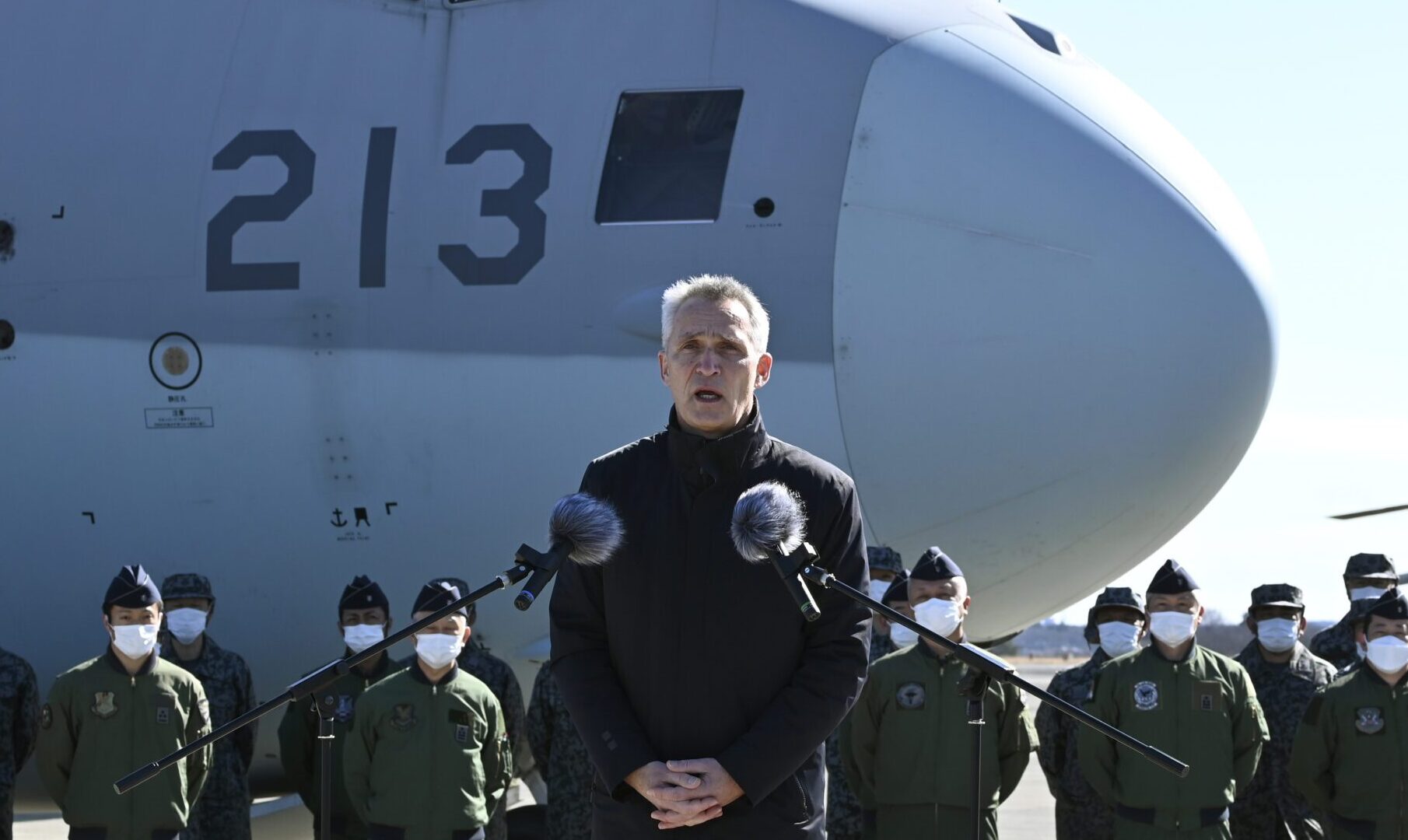
NATO Chief Jens Stoltenberg and Japanese Prime Minister Fumio Kishida have pledged to strengthen ties after a Tuesday, January 31st, meeting in Tokyo. The commitment to closer collaboration was prompted by what they called “the most tense security environment since World War II.”
According to Reuters, the secretary general made the trip to Japan after visiting South Korea the day before. While in Seoul, Stoltenberg urged South Korea to increase military support to Ukraine and to include ammunition and weaponry in its aid packages, which so far have only contained non-lethal defense equipment. “If we don’t want autocracy and tyranny to win, then [Ukrainians] need weapons, that’s the reality,” Stoltenberg underlined in his speech on Monday.
In Tokyo, Stoltenberg and Kishida issued a joint statement after their meeting, stating that
[T]he world is at a historical inflection point in the most severe and complex security environment since the end of World War II … This war is not just a European crisis, but a challenge to the world order.
Apart from Russia’s war in Ukraine, the statement listed a number of concerns that warrant closer cooperation between NATO and its East Asian allies, including Russia’s constant nuclear threats, joint Chinese and Russian military drills near Japan, North Korea’s development of nuclear weapons and its unprecedented number of ballistic missile tests last year, as well as Beijing’s aggressive stance on the Taiwanese reunification question.
A Russian victory in Ukraine would have devastating effects on the South China Sea, said Stoltenberg, as it would embolden China at a time when it is expanding its military force to threaten and bully its neighbors, especially Taiwan. Stoltenberg said that
Beijing is watching closely, and learning lessons that may influence its future decisions … What is happening in Europe today could happen in East Asia tomorrow.
In response to Stoltenberg’s similar remarks in Seoul, the Chinese foreign ministry stated that it treats neighboring countries as partners and does not threaten any nation’s interests or security.
While important milestones, these meetings did not mark the beginning of Japan’s and South Korea’s closer relationship with NATO. Both countries officially received observer status last year and their leaders—premier Kishida and Korean president Yoon Suk-yeol—became the first from their countries to attend a NATO Summit last June.
Japan not only seeks more effective security cooperation but also plans to significantly strengthen its defense capabilities in the near future. In December last year, Tokyo announced its biggest military build-up since the 1940s, increasing its defense budget to a level topped only by the U.S. and China.
Japan also prepares to host this year’s G7 Summit in May, where the discussion will likely be dominated by the Russian invasion and other security concerns. In the meantime, according to domestic sources, Prime Minister Kishida is planning a trip to Kyiv to reinforce Japan’s commitment to supporting Ukraine’s war efforts.
